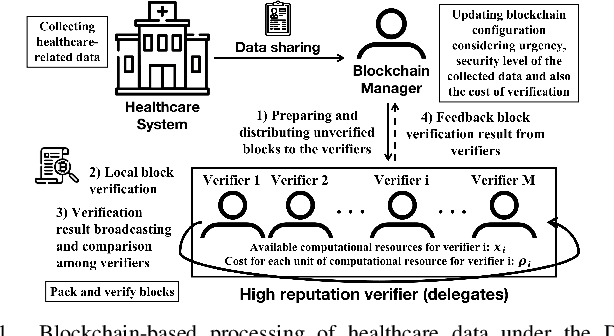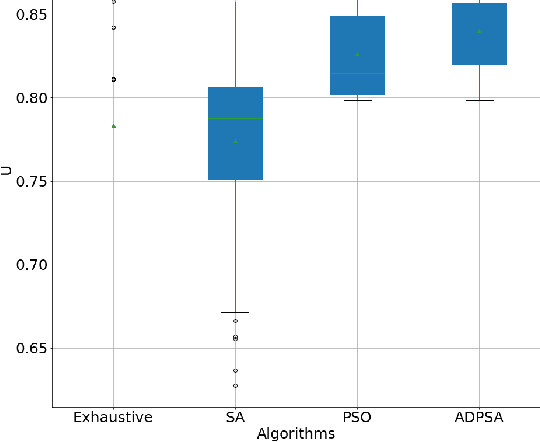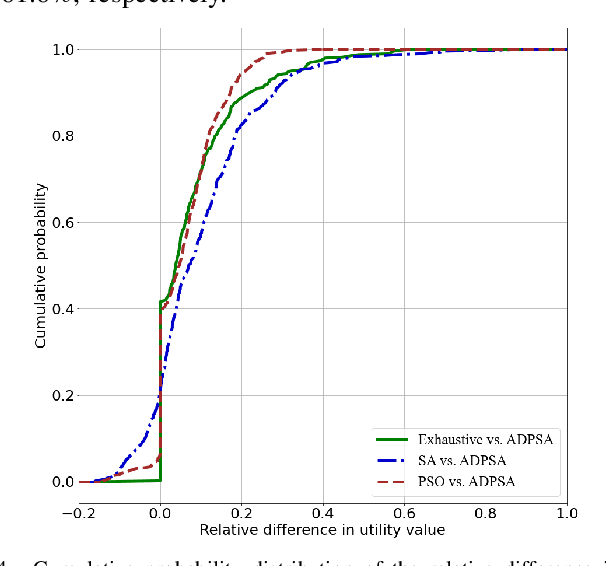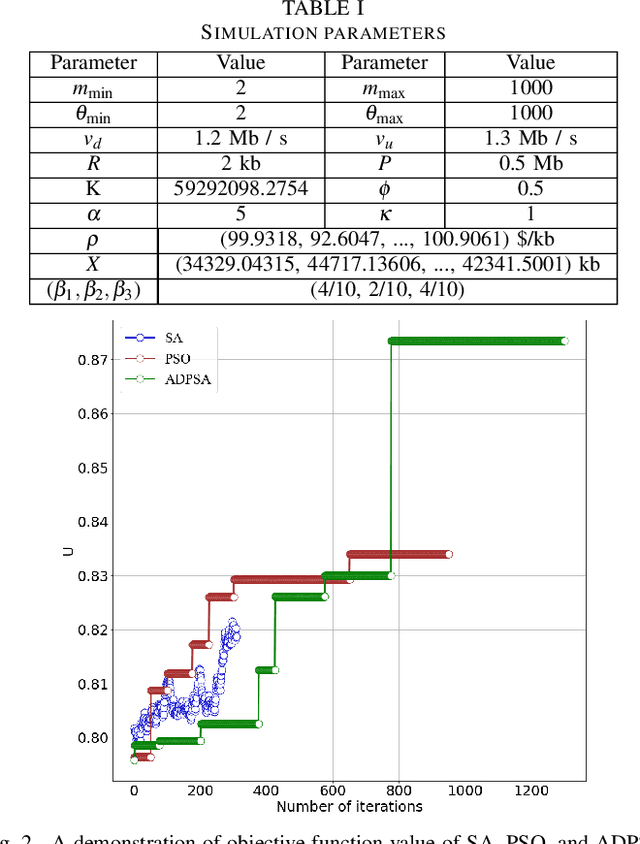Jingjin Wu
Adaptive Client Selection via Q-Learning-based Whittle Index in Wireless Federated Learning
Sep 19, 2025Abstract:We consider the client selection problem in wireless Federated Learning (FL), with the objective of reducing the total required time to achieve a certain level of learning accuracy. Since the server cannot observe the clients' dynamic states that can change their computation and communication efficiency, we formulate client selection as a restless multi-armed bandit problem. We propose a scalable and efficient approach called the Whittle Index Learning in Federated Q-learning (WILF-Q), which uses Q-learning to adaptively learn and update an approximated Whittle index associated with each client, and then selects the clients with the highest indices. Compared to existing approaches, WILF-Q does not require explicit knowledge of client state transitions or data distributions, making it well-suited for deployment in practical FL settings. Experiment results demonstrate that WILF-Q significantly outperforms existing baseline policies in terms of learning efficiency, providing a robust and efficient approach to client selection in wireless FL.
Modeling and Joint Optimization of Security, Latency, and Computational Cost in Blockchain-based Healthcare Systems
Mar 28, 2023



Abstract:In the era of the Internet of Things (IoT), blockchain is a promising technology for improving the efficiency of healthcare systems, as it enables secure storage, management, and sharing of real-time health data collected by the IoT devices. As the implementations of blockchain-based healthcare systems usually involve multiple conflicting metrics, it is essential to balance them according to the requirements of specific scenarios. In this paper, we formulate a joint optimization model with three metrics, namely latency, security, and computational cost, that are particularly important for IoT-enabled healthcare. However, it is computationally intractable to identify the exact optimal solution of this problem for practical sized systems. Thus, we propose an algorithm called the Adaptive Discrete Particle Swarm Algorithm (ADPSA) to obtain near-optimal solutions in a low-complexity manner. With its roots in the classical Particle Swarm Optimization (PSO) algorithm, our proposed ADPSA can effectively manage the numerous binary and integer variables in the formulation. We demonstrate by extensive numerical experiments that the ADPSA consistently outperforms existing benchmark approaches, including the original PSO, exhaustive search and Simulated Annealing, in a wide range of scenarios.
An Attention-based Long Short-Term Memory Framework for Detection of Bitcoin Scams
Oct 26, 2022Abstract:Bitcoin is the most common cryptocurrency involved in cyber scams. Cybercriminals often utilize pseudonymity and privacy protection mechanism associated with Bitcoin transactions to make their scams virtually untraceable. The Ponzi scheme has attracted particularly significant attention among Bitcoin fraudulent activities. This paper considers a multi-class classification problem to determine whether a transaction is involved in Ponzi schemes or other cyber scams, or is a non-scam transaction. We design a specifically designed crawler to collect data and propose a novel Attention-based Long Short-Term Memory (A-LSTM) method for the classification problem. The experimental results show that the proposed model has better efficiency and accuracy than existing approaches, including Random Forest, Extra Trees, Gradient Boosting, and classical LSTM. With correctly identified scam features, our proposed A-LSTM achieves an F1-score over 82% for the original data and outperforms the existing approaches.
 Add to Chrome
Add to Chrome Add to Firefox
Add to Firefox Add to Edge
Add to Edge